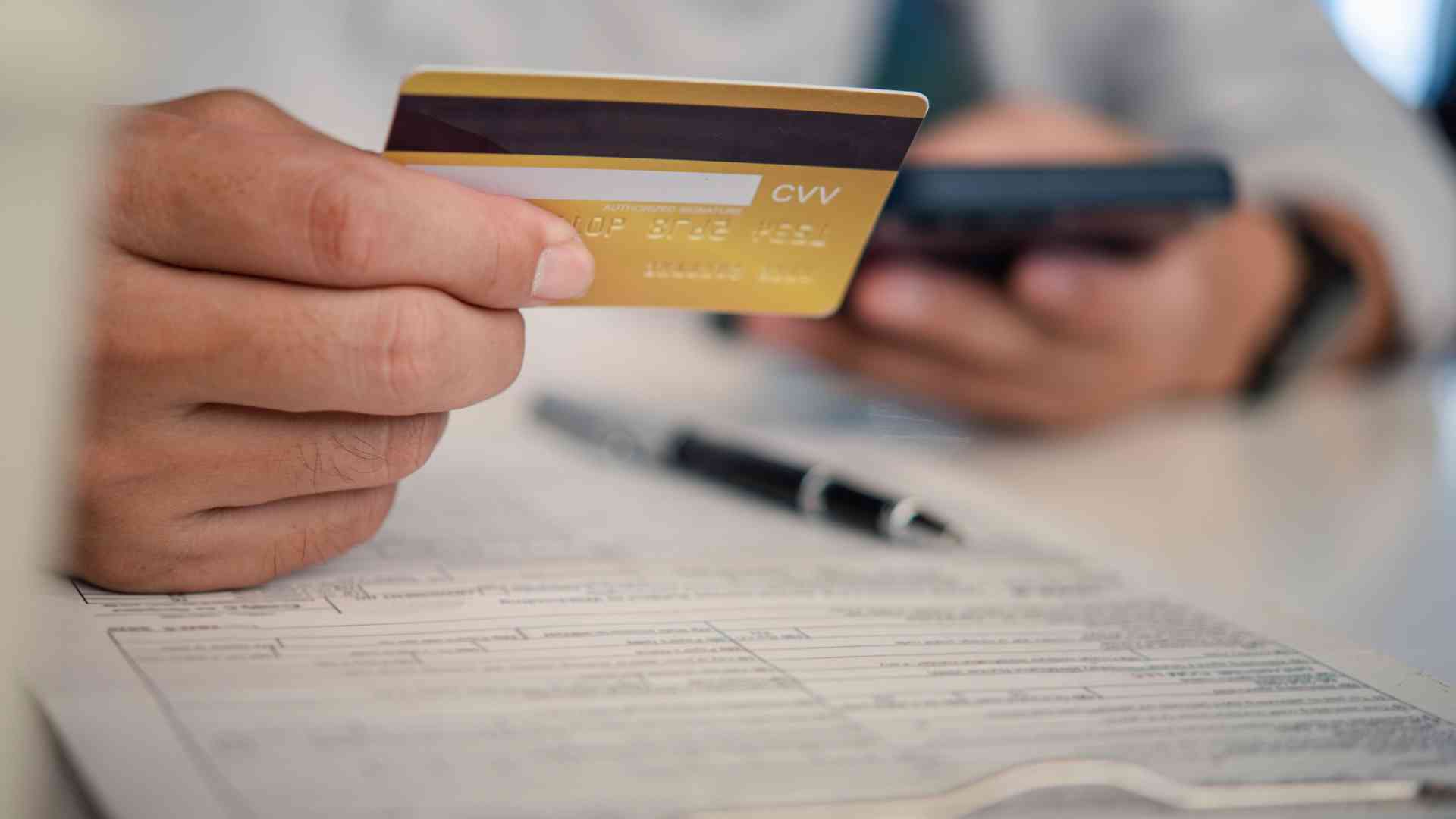The digital nomad lifestyle, with its borderless work opportunities and cultural exploration, has taken the world by storm. As digital nomads traverse various countries and immerse themselves in diverse cultures, they face a universal challenge: effectively managing their finances across borders. The complexities of navigating different currencies, tax regulations, and financial systems can pose significant hurdles to maintaining financial stability while on the move. From fluctuating exchange rates to international transaction fees, the financial landscape for digital nomads demands careful consideration and strategic planning.
In this article, we delve into the strategies that digital nomads can adopt to handle cross-border financial transactions seamlessly. By understanding the intricacies of foreign exchange, leveraging digital banking tools, and staying informed about tax implications, digital nomads can optimize their financial management approach. Embracing these strategies not only ensures a smoother journey but also empowers digital nomads to focus on what they do best – exploring the world while building their careers.
1. Choose the Right Banking Solution: International-Friendly Accounts
Choosing the right banking solution is a crucial step for digital nomads looking to manage their finances seamlessly across borders. International-friendly accounts have become essential tools to navigate the complexities of cross-border transactions. These accounts typically come with features such as multi-currency support, online banking platforms, and convenient international wire transfer options.
One of the primary benefits of multi-currency accounts is the ability to hold various currencies within a single account. This eliminates the need for constant currency conversion, reducing the impact of fluctuating exchange rates. Online banking platforms offer the flexibility to manage finances from anywhere in the world, enabling digital nomads to monitor their transactions, transfer funds, and pay bills conveniently.
When selecting a bank, it’s essential to research and compare different options to find the one that best suits your needs. Consider factors such as fees for international transactions, ATM withdrawals, and currency conversion rates. Look for banks that offer competitive rates and transparent fee structures. Additionally, read reviews and seek recommendations from fellow digital nomads to ensure the bank’s reliability and customer service quality.
By opting for international-friendly accounts, digital nomads can simplify their financial management, minimize costs, and focus more on exploring new horizons.
2. Utilize Online Payment Platforms: Ease of Transactions
Utilizing online payment platforms is another effective strategy for digital nomads to manage cross-border financial transactions with ease. Platforms like PayPal, TransferWise (now known as Wise), and various fintech services offer a convenient and efficient way to send and receive money internationally.
These platforms enable digital nomads to transfer funds between different currencies at competitive exchange rates. They often have lower fees compared to traditional banks and provide transparency in terms of transaction costs. Moreover, they offer real-time tracking of transactions, ensuring that you’re always aware of the status of your transfers.
To get started, create accounts on the platforms you intend to use and link them to your bank accounts or debit/credit cards. Make sure to understand the fees associated with each transaction, as they can vary based on factors such as the amount transferred and the currency conversion involved. Additionally, prioritize security by enabling two-factor authentication and regularly updating your account passwords.
By utilizing online payment platforms, digital nomads can streamline their financial transactions, save on fees, and have greater control over their cross-border funds.
3. Monitor Exchange Rates: Timing Is Everything
Monitoring exchange rates is a crucial aspect of effective cross-border financial management for digital nomads. Exchange rates determine the value of currencies relative to each other and can have a significant impact on the outcome of your transactions.
Currency fluctuations are a natural occurrence in the global financial markets and can lead to changes in the cost of goods, services, and investments. For digital nomads, this means that the amount you receive or pay in another currency can vary based on shifts in exchange rates.
To navigate these fluctuations, it’s advisable to use exchange rate tracking tools or apps that provide real-time updates on currency values. These tools help you stay informed about the current rates and allow you to make transactions when the exchange rate is most favorable to you.
When conducting cross-border transactions, consider timing your transactions strategically. If you have the flexibility, wait for moments when the exchange rate is more favorable, allowing you to maximize the value of your funds. Additionally, consider setting up rate alerts that notify you when a desired exchange rate is reached, enabling you to take timely action.
By monitoring exchange rates and making informed decisions, digital nomads can optimize their cross-border financial transactions and make the most of their funds while minimizing the impact of currency fluctuations.
4. Minimize Fees: Smart Money Management

Minimizing fees is a crucial aspect of smart money management for digital nomads engaged in cross-border financial transactions. When conducting transactions across different countries and currencies, various fees can eat into your funds, impacting your overall financial efficiency.
- Conversion Fees: Many traditional banks and financial institutions charge conversion fees when you convert one currency into another. To minimize these fees, consider using multi-currency accounts or online platforms that offer competitive conversion rates.
- Transfer Fees: When sending money across borders, banks often impose transfer fees, which can vary widely depending on the institution. Look for banks or platforms that offer low or zero transfer fees, especially for larger transactions.
- ATM Withdrawal Fees: Withdrawing cash from ATMs in foreign countries can come with substantial fees. Opt for banks or financial institutions that offer fee-free or reduced-fee withdrawals at partner ATMs around the world.
- Consolidate Transactions: Instead of making frequent small transactions, consider consolidating your transactions to reduce the overall number of fees you incur. This approach can be especially beneficial when dealing with conversion fees.
- Peer-to-Peer Transfers: Peer-to-peer transfer services like TransferWise (now Wise) often offer better exchange rates and lower fees compared to traditional banks. These services specialize in cross-border transactions and can be a cost-effective solution for sending money internationally.
- Negotiate with Banks: Some banks may be willing to negotiate fees, especially if you’re a valued customer. Don’t hesitate to inquire about fee waivers or reductions based on your relationship with the bank.
- Research Online Banks: Online banks and digital platforms often have lower overhead costs and, as a result, may offer more competitive rates and fewer fees for cross-border transactions.
By taking a proactive approach to minimizing fees, digital nomads can optimize their cross-border financial transactions, preserving more of their hard-earned money and ensuring efficient money management across different countries and currencies.
5. Use Prepaid Travel Cards: Security and Convenience
Prepaid travel cards are a popular and practical option for digital nomads to manage their cross-border spending effectively. These cards offer a range of benefits that can enhance financial security, convenience, and controlled spending while living a nomadic lifestyle.
Security and Convenience:
- Reduced Risk: Prepaid travel cards are not directly linked to your main bank account, providing an extra layer of security against potential fraud and unauthorized transactions.
- Limited Exposure: Since prepaid cards are not connected to your primary bank account, even if the card is lost or stolen, the potential loss is limited to the card’s balance.
- Ease of Use: Prepaid travel cards function like debit or credit cards and are widely accepted at shops, restaurants, and ATMs, making them convenient for everyday expenses.
Controlled Spending:
- Budgeting: You can load a specific amount onto the prepaid card, helping you stick to a budget and avoid overspending.
- No Overdrafts: Unlike credit cards, prepaid cards have a fixed balance, so you won’t accidentally overspend or incur overdraft fees.
- Currency Conversion: Many prepaid travel cards allow you to load multiple currencies, making them ideal for managing expenses in different countries without incurring conversion fees.
Selecting and Using Prepaid Travel Cards:
- Compare Fees: Research different prepaid card providers to understand their fee structures. Look for cards with low or no fees for currency conversion, ATM withdrawals, and reloading.
- Reputation: Choose reputable prepaid card providers with a track record of security and reliability.
- Multi-Currency Options: Opt for cards that support multiple currencies if you plan to visit various countries.
- Reload Options: Consider how you can reload the card while on the road. Some cards offer online or mobile app reloading, while others might require visiting a physical location.
- Check Limits: Be aware of withdrawal and spending limits associated with the card.
- Backup Options: It’s a good idea to have a backup payment method, such as another card or some local currency, in case your prepaid card encounters issues.
Prepaid travel cards can offer digital nomads peace of mind and financial flexibility while managing expenses across different countries. By selecting the right card and understanding its features and fees, nomads can make the most of their cross-border spending experiences.
6. Consider Cryptocurrencies: A Growing Alternative

Using cryptocurrencies as an alternative for cross-border transactions is a growing trend among digital nomads due to its unique advantages. Cryptocurrencies are digital or virtual currencies that use cryptography for secure transactions and are decentralized, meaning they are not controlled by any central authority.
Benefits of Cryptocurrencies:
- Lower Fees: Cryptocurrency transactions often have lower fees compared to traditional banking and financial services, making them cost-effective for cross-border transactions.
- Faster Transactions: Cryptocurrency transactions can be processed quickly, often within minutes, regardless of the geographical location of the parties involved.
- Global Accessibility: Cryptocurrencies are accessible to anyone with an internet connection, providing a borderless and inclusive financial solution.
- Security: Cryptocurrencies use advanced cryptography to ensure secure transactions and protect users’ financial information.
- Reduced Currency Conversion: Cryptocurrencies can eliminate the need for currency conversion, as they are not tied to any specific country’s currency.
Using Cryptocurrencies for Cross-Border Transactions:
- Cryptocurrency Exchanges: To acquire cryptocurrencies, you’ll need to use a cryptocurrency exchange where you can buy, sell, and trade different cryptocurrencies using traditional currencies.
- Wallets: Cryptocurrencies are stored in digital wallets. There are different types of wallets, including online, hardware, and software wallets, each with varying levels of security and accessibility.
- Volatility Considerations: Cryptocurrency values can be highly volatile, meaning their value can fluctuate significantly in a short period. It’s important to be aware of this volatility when using cryptocurrencies for transactions.
- Research and Education: Before using cryptocurrencies, it’s essential to educate yourself about how they work, how to secure your wallet, and how to navigate the cryptocurrency market.
- Local Regulations: Research the legal status of cryptocurrencies in the countries you plan to use them. Some countries have specific regulations or restrictions related to cryptocurrency usage.
Potential Risks:
- Volatility: The value of cryptocurrencies can be highly volatile, leading to potential gains or losses.
- Security: While cryptocurrencies offer strong security features, the risk of hacking and fraud exists. Proper wallet security measures are crucial.
- Regulatory Changes: Cryptocurrency regulations can vary by country and may change over time, affecting your ability to use them.
Cryptocurrencies offer an innovative and alternative way to manage cross-border transactions for digital nomads. However, due to their unique nature and potential risks, it’s important to thoroughly research and understand how they work before incorporating them into your financial strategy.
7. Automate Transactions: Set Up Regular Transfers
Automating regular cross-border transactions can be highly advantageous for digital nomads, offering efficiency, convenience, and consistency in managing your finances across different countries. Here are the key benefits and tips for setting up automated transfers:
Advantages of Automating Transactions:
- Time Savings: Automating transactions eliminates the need for manual processing, saving you time that you can allocate to other activities.
- Consistency: Regular automated transfers ensure that bills, savings contributions, and investments are consistently managed, reducing the risk of missed payments or opportunities.
- Reduced Error: Automation minimizes the chances of human errors that can occur when manually executing transactions.
- Convenience: You can set up automated transfers once and have them executed on a predefined schedule, even when you’re busy or traveling.
- Financial Discipline: Automated transfers encourage financial discipline by ensuring that financial commitments are met consistently.
Setting Up Automated Transfers:
- Identify Regular Transactions: Identify the transactions you want to automate, such as rent, utilities, savings, and investments.
- Choose Suitable Payment Methods: Ensure that the payment methods you choose are compatible with automation, such as bank accounts or digital wallets.
- Select Frequency: Determine the frequency of automated transfers—whether they should occur weekly, bi-weekly, monthly, or according to a specific schedule.
- Choose Reliable Platforms: Use reputable online banking platforms, financial apps, or third-party services to set up automated transfers.
- Set Up Alerts: Many banking platforms offer email or text alerts to notify you when automated transfers are executed, helping you stay informed.
- Monitor and Adjust: Regularly review your automated transactions to ensure they align with your financial goals and to make adjustments as needed.
Examples of Automated Transactions:
- Bills and Utilities: Set up automatic payments for rent, utilities, internet services, and other recurring bills.
- Savings: Automate transfers to your savings account, retirement account, or investment account to build wealth over time.
- Investments: Automatically invest a certain amount of money into stocks, mutual funds, or other investment vehicles.
- Debt Repayments: Schedule automated payments to pay off loans, credit card balances, or other debts.
- International Transfers: Use online platforms or apps that offer automated international money transfers with competitive exchange rates.
By automating your cross-border financial transactions, you can streamline your financial management and ensure that your financial commitments and goals are consistently met, regardless of your location.
8. Stay Informed About Regulations: Legal Compliance

Staying informed about international financial regulations is crucial for digital nomads to ensure legal compliance and manage potential challenges related to tax implications and financial regulations. Here’s why it’s important and how you can navigate this aspect effectively:
Understanding International Financial Regulations:
- Tax Implications: Different countries have varying tax laws that may impact your income, investments, and financial activities. Failing to comply with tax regulations can lead to penalties and legal issues.
- Legal Compliance: Adhering to financial regulations is essential to avoid legal repercussions, ensure your financial activities are legitimate, and maintain a positive reputation.
Challenges and Considerations:
- Tax Residency: Understanding your tax residency status in different countries is crucial, as it determines where you need to pay taxes. This can become complex when you’re moving between countries.
- Tax Treaties: Many countries have tax treaties that prevent double taxation and determine which country has the primary right to tax certain types of income. Familiarize yourself with these treaties to optimize your tax situation.
- Filing Requirements: Each country has its own tax filing requirements and deadlines. Failure to file taxes correctly and on time can result in penalties and legal issues.
- Foreign Bank Account Reporting: Some countries require residents to report foreign bank accounts if the balances exceed a certain threshold. Non-compliance can lead to penalties.
- Record Keeping: Maintaining accurate financial records is essential. This includes invoices, receipts, bank statements, and other documentation that can support your tax filings and financial transactions.
Navigating Financial Regulations:
- Seek Professional Advice: Consult with tax professionals, accountants, or financial advisors who specialize in international taxation. They can provide tailored advice based on your unique situation.
- Stay Informed: Regularly update yourself on tax laws and regulations in both your home country and the countries you’re residing in or earning income from.
- Use Online Resources: Government websites, tax authorities, and international organizations often provide resources and guides on cross-border taxation.
- Hire Local Experts: If you’re spending significant time in a specific country, consider hiring a local accountant or tax consultant who understands the nuances of that country’s tax system.
- Declare Income Correctly: Accurately report your income in all applicable jurisdictions, taking into account deductions, exemptions, and credits.
- Keep Records: Maintain well-organized financial records and documentation to substantiate your income, expenses, and transactions.
- Plan Ahead: Understand potential tax liabilities before making financial decisions, such as investments or business activities, in different countries.
Navigating international financial regulations requires diligence, awareness, and a proactive approach. By seeking professional advice, staying informed, and maintaining accurate records, you can ensure that you’re compliant with tax laws and financial regulations in the countries you operate in, and avoid potential legal issues or financial penalties.
Watch Key strategies to understand how cross-border payments work | Video
Top 5 FAQs and answers related to 7 Strategies for Manage Cross-Border Financial Transactions
What is the best way to transfer money internationally with minimal fees?
Using online payment platforms like PayPal or Wise (formerly TransferWise) is a convenient option. These platforms offer competitive exchange rates and lower fees compared to traditional banks. Another option is to consider peer-to-peer transfer services that can offer even lower fees for certain transactions.
How can I manage currency fluctuations when conducting cross-border transactions?
To manage currency fluctuations, monitor exchange rates using tracking tools and consider making transactions when rates are favorable. You can also use multi-currency accounts offered by some banks or online platforms to hold and convert funds at more opportune times.
What should I consider when opening an international-friendly bank account?
Look for banks that offer multi-currency accounts, online banking, and favorable terms for international transactions. Consider factors like currency conversion rates, withdrawal fees, and international wire transfer charges. Research and compare options to find the best fit for your needs.
Can cryptocurrencies be used for cross-border financial transactions?
Yes, cryptocurrencies like Bitcoin and Ethereum can be used for cross-border transactions. They offer advantages such as lower fees and faster transaction times. However, it’s important to understand the risks and volatility associated with cryptocurrencies and to choose reputable cryptocurrency exchanges and wallets.
How can I automate cross-border transactions and bill payments?
Setting up automated transfers for regular bills, savings, and investments is a smart strategy. Many banks and online platforms offer automatic transfer options. By automating, you can save time, reduce manual effort, and ensure consistency in your financial management.
Conclusion

In conclusion, the strategies discussed in this article provide valuable insights for digital nomads seeking to manage cross-border financial transactions effectively. The global nature of the digital nomad lifestyle demands adaptable and informed financial practices. By selecting the right banking solutions with international features, utilizing online payment platforms, monitoring exchange rates, minimizing fees, and considering innovative options like cryptocurrencies, digital nomads can navigate the complexities of cross-border finance with confidence.
It’s crucial to prioritize security, convenience, and cost-efficiency when making financial decisions. Additionally, automating transactions and staying informed about international financial regulations contribute to a smoother financial experience. By adopting these strategies, digital nomads can focus on their work and exploration, knowing that their finances are managed in a way that aligns with their nomadic lifestyle.
Ultimately, being proactive in cross-border financial management empowers digital nomads to make the most of their global journeys, while ensuring that their financial transactions are well-managed, secure, and optimized for their unique needs.
Please share this 7 Strategies for Manage Cross-Border Financial Transactions with your friends and do a comment below about your feedback.
We will meet you on next article.
Until you can read, 8 Lesser-Known Challenges of Nomading in Remote Areas
